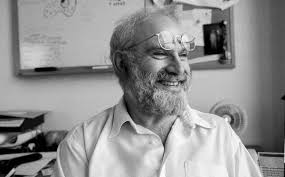
1. “Every act of perception, is to some degree an act of creation, and every act of memory is to some degree an act of imagination.”
2. “Music can lift us out of depression or move us to tears - it is a remedy, a tonic, orange juice for the ear. But for many of my neurological patients, music is even more - it can provide access, even when no medication can, to movement, to speech, to life. For them, music is not a luxury, but a necessity.”
5. “If we wish to know about a man, we ask 'what is his story--his real, inmost story?'--for each of us is a biography, a story. Each of us is a singular narrative, which is constructed, continually, unconsciously, by, through, and in us--through our perceptions, our feelings, our thoughts, our actions; and, not least, our discourse, our spoken narrations. Biologically, physiologically, we are not so different from each other; historically, as narratives--we are each of us unique.”
6. “I cannot pretend I am without fear. But my predominant feeling is one of gratitude. I have loved and been loved; I have been given much and I have given something in return; I have read and traveled and thought and written. I have had an intercourse with the world, the special intercourse of writers and readers. Above all, I have been a sentient being, a thinking animal, on this beautiful planet, and that in itself has been an enormous privilege and adventure.”
7. “In examining disease, we gain wisdom about anatomy and physiology and biology. In examining the person with disease, we gain wisdom about life.”
8. “Language, that most human invention, can enable what, in principle, should not be possible. It can allow all of us, even the congenitally blind, to see with another person’s eyes.”
9. “Waking consciousness is dreaming – but dreaming constrained by external reality”
10. “The brain is more than an assemblage of autonomous modules, each crucial for a specific mental function. Every one of these functionally specialized areas must interact with dozens or hundreds of others, their total integration creating something like a vastly complicated orchestra with thousands of instruments, an orchestra that conducts itself, with an ever-changing score and repertoire.”








